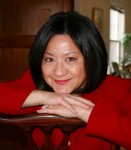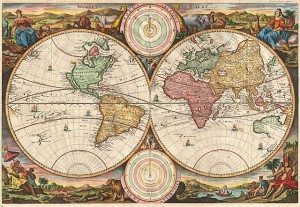Art of Column Writing
By Suzette Martinez Standring
2004-06 President
National Society of Newspaper Columnists

Suzette Standring
Spirituality and conscience underscore the opinion columns by Robert C. Koehler who ranks among the top op-ed columnists nationally, according to Media Matters. Syndicated since 1999 with Tribune Media, Bob is a self-described peace journalist whose columns expose the facts, motives and consequences behind the propaganda of war. He has written about morally debilitated veterans (post-traumatic stress disorder, depression, suicide), the inaccuracy of drone strikes, the rise of birth defects in areas of bombing and heavy fighting, and noted, “Peace journalism is essentially focused on the human condition.”
A mindset of helplessness is what Bob seeks to change, and signature elements of his column are complexity and a sense of empowerment. “I truly am appalled at the idea of a spectator culture, where we simply sit back and watch celebrities, or experts or events. I want readers to feel they are in the middle of a story, and they are empowered to each have a say.”
The spiritual aspect of issues is a very real component, and its expression will lead to the empowerment of others, according to Bob, “Your voice and your conscience are one and the same so don’t take it out of your writing. ”
To write well, listen well. Be a good listener to external sources as well as to the voice within. To understand what others are trying to say, first set aside assumptions, biases, and personal feelings on an issue. One’s position will crystallize after the information gathering.
Objectivity is a myth. Bob believes one’s feelings about issues do affect content, no matter whether the writer is a columnist or a reporter. “There is no such thing as objective reporting. How you approach a story or organize it is still subjective. I used to cover the north side of Chicago for the old Lerner Newspapers. I wasn’t a columnist, I just wrote news stories. My opinion about public meetings was not the story, but I’d still have an opinion, and it would have an influence on how I organized the story.
“My answer is that everything is advocacy. If you pretend to take your conscience out of it, and let anybody in power to dictate the story, instead of using your voice, that’s still advocacy journalism.”
Complexity is key. Nothing is simple, and disservice is done to the reader when various aspects of a problem are ignored. Complexity is one of the signature elements of Bob’s columns. For example, he wrote about a family judge who went beyond procedure to help a family through a bitter child custody matter involving relocation.
To appreciate the resolution reached, the reader had to understand how each of the parent’s needs and concerns contrasted, so Bob distilled information from four different interviews. In comparison, too many writers would play up the acrimony and feuding.
“It’s abuse when you’re just going for titillation. I try to convey complexity, and various things can be part of that. I try to write compellingly. I’m a big believer in a killer lead, and you get pulled paragraph to paragraph through the story. Any writer worth his salt will have some skill at doing that.”
In a 2010 OpEdNews interview, he told Joan Brunwasser, “I call the columns I write op-eds disguised as prayers. To be a peace journalist means to plunge deeply into a topic, to let go of prejudices, to listen to people with sympathy and respect, and to stand firmly for nonviolent, healing-focused solutions to conflict.”
• • •
This column is an abbreviated excerpt from Suzette Standring’s book in-progress on opinion writing that will feature advice and tips from leading op-ed columnists. She is the author of The Art of Column Writing. For more information visit readsuzette.com.
This column was first published in the January 2013 edition of The eColumnist, the monthly newsletter of the National Society of Newspaper Columnists. The full newsletter is available only to NSNC members. For more information, please see our Join or Renew page.

Stoopendaal Map of the World – 1730


